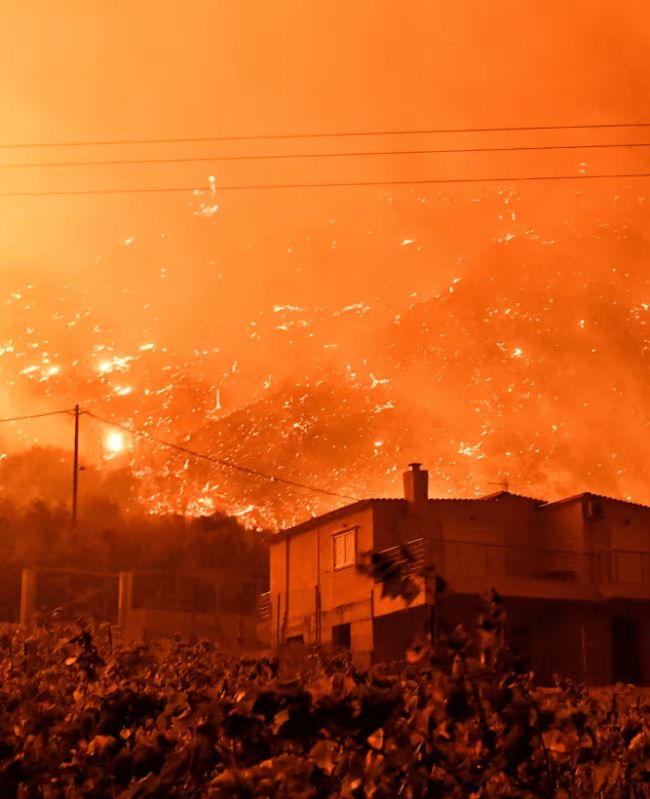Articles Menu

Nov. 19, 2024
There can be no net zero without nature. Each year, the planet’s oceans, forests, soils and other natural carbon sinks absorb about half of all human emissions. They feature in dozens of national plans to limit global heating to below 2C. This week, however, the scientific architects of net zero have a warning: you have misunderstood mother nature’s role in our plan.
On Monday in the journal Nature, the researchers who developed the concept in 2009 say that vague net zero definitions could mean that the world only ends up meeting the target on paper while the planet continues to warm. By including naturally occurring carbon removals from forests, oceans and other natural sources as if they were human-caused in national plans, the scientists say that countries could, in effect, “cheat” their way to towards Paris agreement targets.
“We are already counting on forests and oceans to mop up our past emissions, most of which came from burning stuff we dug out of the ground. We can’t expect them to compensate for future emissions as well,” says Oxford professor Myles Allen, who led the study.
As Cop29 in Baku enters its second week, the researchers are urging governments at the summit to clarify their definition of net zero, underscoring the need for “geological net zero”.
What would that actually mean? And how would we do it?
Under the “true” net zero definition, the natural world’s vast carbon-absorbing capabilities must only be put to work to remove historical emissions so that the planet can slowly cool over time, the net zero researchers say – not to cancel out future fossil fuel pollution.
“It is a common assumption that removing carbon from the atmosphere to offset burning of fossil fuels is as effective as not burning fossil fuels in the first place. It is not. Offsetting continued fossil fuel use with carbon removal will not be effective if the removal is already being counted on as part of the natural carbon cycle and if the carbon is not permanently stored,” says Prof Kirsten Zickfeld of Canada’s Simon Fraser University, a co-author and leader of one of the 2009 net zero papers.
The intervention comes at a time of increasing concern about the Earth’s carbon sinks, one of the least understood parts of the climate change equation. During record temperatures in 2023, new research shows that the amount of carbon absorbed by the land fell dramatically due to wildfires and drought turbocharged by El Niño. Many European countries – including Finland, Germany, France, Estonia and Sweden – are experiencing large declines in their land sinks, imperilling their national climate targets in some cases. This is giving researchers cause for concern.
“Unrealistically optimistic estimates of land-based removal potential by climate models is giving us a false sense of the capacity for land to absorb our future emissions, potentially locking us into scenarios where we greatly overshoot our temperature targets – which comes with various risks and uncertainties,” says Joanne Bentley, an analyst for Zero Carbon Analytics, who has recently reviewed how nature is being used to meet the Paris agreement.
Zero Carbon Analytics found that countries are using different methods for reporting their land-based carbon removal to the Intergovernmental Panel on Climate Change, making countries appear to be further ahead of climate progress than they truly are. When harmonised, the budget for limiting warming falls by as much as 18%, they say.
“How land is classified in national climate commitments is a critical blind spot in carbon accounting. It allows vast emissions from wildfires and natural disturbances in forests to go uncounted, ultimately misrepresenting progress towards climate goals,” Bentley explains. “This is especially problematic when governments over-rely on forests to absorb emissions instead of making the immediate, large-scale changes to industries that are urgently needed.”
[Top photo: Photograph: Valérie Gache/AFP/Getty Images Panagiotis, a student and volunteer firefighter, ended up defending his own home when a wildfire broke out in the summer. The Attica wildfires killed one person and burned more than 8,000 hectares of forest and land, including many homes. Dozens of people were hospitalised due to smoke inhalation.]